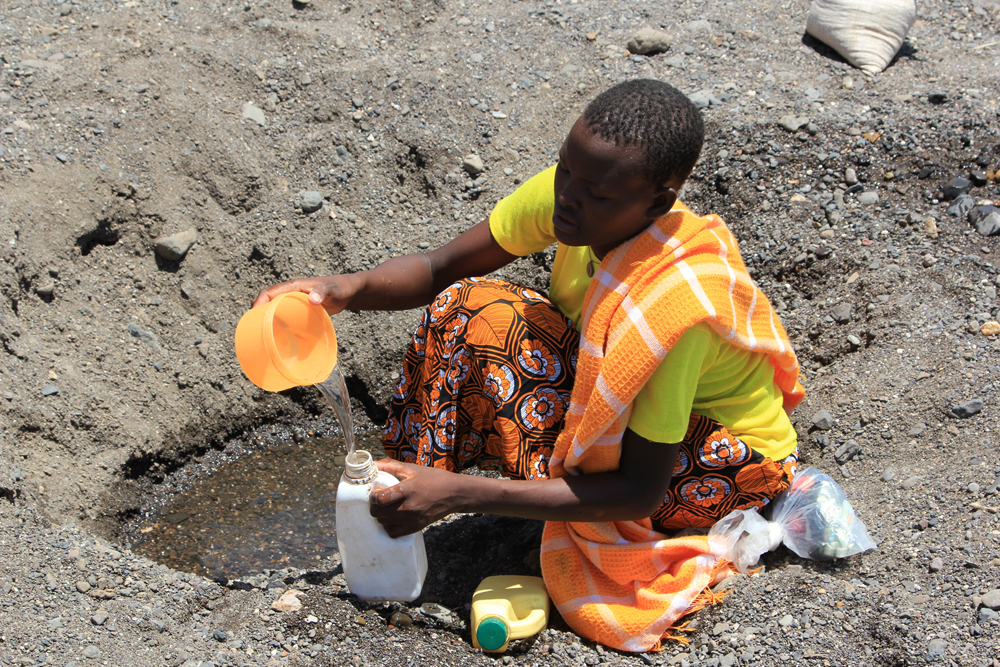Over at National Public Radio’s Planet Money blog, a provocative debate about water has broken out amongst commenters. In a post today, David Kestenbaum posits that people in rural Kenya who do not take advantage of readily available chlorine to decontaminate their drinking water are simply behaving as humans do.
People everywhere — in rural Kenya, in New York, wherever — just don’t always do all the things we’re supposed to do.

A woman scoops water in a dry riverbed near Kataboi village in remote Turkana in northern Kenya.
Photo by DFID – UK Department for International Development [CC-BY-2.0 (http://creativecommons.org/licenses/by/2.0)], via Wikimedia Commons
The UN estimates that 760,000 children under 5 die every year from diseases, typically diarrhea, caused by viruses, bacteria and pathogens in drinking water, mostly in the developing world. In some places, Kenyans search the landscape daily for available water of dubious quality — from dry riverbeds, ditches, and pits dug to collect rainwater.
But even water from a clean community well can be readily contaminated by hands, cups or containers that are dirty. And, unlike skipping a tooth flossing, one dirty slip with water, and your life, or the life of your child, is at risk.
So aid workers in Kenya provided easily measured doses of chlorine right at wells. But old habits die hard, and new ideas, such as drinking chlorine, don’t always go down easy. According to Kestenbaum, researchers found chlorine in the drinking water of only 40% of homes tested.
The developed world has solved the water problem by essentially taking people out of the loop: We pipe clean water to everyone’s houses. But it’s going to be a long time before that happens in rural Kenya.
Some commenters are humane and compassionate:
Should we then abandon people who need at least a step up by not providing them with clean water if we can? Charity isn’t just for thoughtful or deserving people, or those without bad habits. It’s to help bring all people somewhere close to the same level of basic safety and opportunity.
But many take a decidedly different tack (remember this is a blog at National Public Radio, a bastion of liberalism and misplaced sympathies, to hear some in Washington tell it):
“Why do we take care of people in countries that are older than our own. Don’t you think that maybe, if we left them to their own devises, they might actually start to take care of themselves?”
“Without population control in this region, we cause more harm than good by trying to help these people.”
“If ‘diarrhea’ is so commonplace, where are the remains of the millions upon millions who must have died from the disease in just the past century?”
“If people won’t take care of themselves then stop trying to help them. Eventually if things get bad enough they may change their behaviors and start helping themselves.”
“Low IQ mainly. Some people (and most lower animals) can’t learn from experience OR example.”
“Never underestimate the stupidity of human beings.”
Read, and hear, more at David Kestenbaum’s blog post here.









